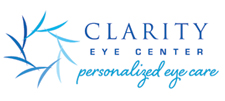Is Protective Eyewear necessary?
- At April 08, 2021
- By Pamela Myhre
- In Eye safety
 0
0
Eye Injuries Cost the NBA $2.4 Million in Single Season
Basketball remains the leading cause of sports-related eye injuries in the United States. But getting athletes of any age or skill level to wear protective eyewear is a tough sell.
Eye experts push for sports eye protection
Ophthalmologists hear all the reasons for not wearing eye protection, even after a player suffers a significant injury,
such as fractures to the bones around the eye socket. Eye protection is cumbersome, they fear it will impair their peripheral vision or that fog or sweat will accumulate on lenses and cloud their vision. Even though sports goggles have vastly improved over the years, their appeal has not caught on.
Maybe an appeal to the NBA’s bottom line might get their attention?
According to the American Academy of Ophthalmology, ‘Exercise can Stave Off Eye Disease, Study Says’
- At November 03, 2020
- By Pamela Myhre
- In Eye Awareness, Eye Health, Eye safety
 0
0
“Regular exercise can slim your waistline and lift your mood. Now, a new study suggests that exercise may also guard against eye damage.
This could help stave off macular degeneration (AMD), a leading cause of vision loss among people 50 or older.”
Our New Leander Location is Open!
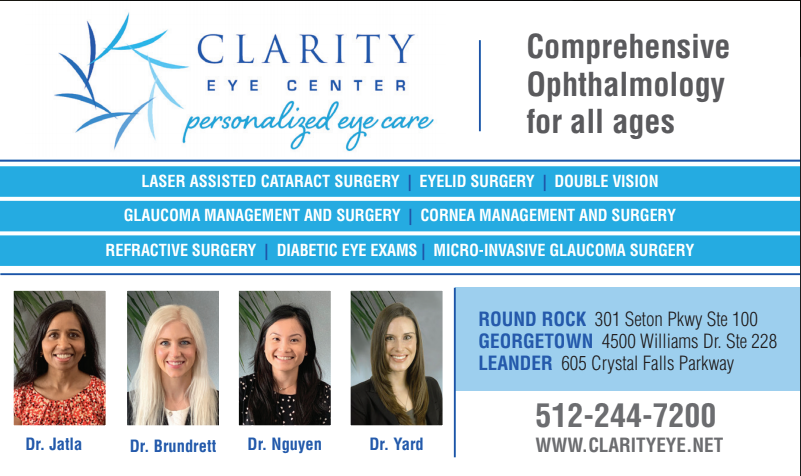
We are excited to bring quality eye care to you!!
Our new Leander location is now open!!!
We are conveniently located on Crystal Falls Parkway, between Bagdad Rd and Bell Blvd.
605 Crystal Falls Parkway, Leander TX 78641
We take Medicare, Medicaid, Commercial and Private Medical Insurances.
Call today for an appointment 512-244-7200
Introducing Dr. Yard

Dr. Colleen Yard is a comprehensive ophthalmologist certified to treat all common medical and surgical ocular issues. Born and raised in Texas, she left briefly to attend college at Washington University in St. Louis where she graduated Magna Cum Laude with a B.A. in Biology and Spanish. She earned her Doctor of Medicine degree at McGovern Medical School at the University of Texas Medical Center at Houston, in the prestigious Texas Medical Center. With the largest medical center in the world at her disposal, she chose to stay in Houston and completed her Ophthalmology Residency with the Ruiz Department of Ophthalmology and Visual Sciences at UT-Houston. She has always loved Central Texas and is thrilled to reside in the Austin area. Her practice includes comprehensive eye exams for adults and children, as well as the evaluation of cataracts, macular degeneration, diabetic eye disease, and glaucoma. Dr. Yard has presented research at several national research meetings, and has published ophthalmic research. She is a member of the American Academy of Ophthalmology, American Society of Cataract and Refractive Surgery, and the Austin Ophthalmology Society. Dr. Yard is fluent in Spanish and looks forward to taking care of the eye care needs of you and your loved ones. In her spare time, she enjoys hiking, reading, and traveling.
Eye Injuries During Protests Are an Emerging Public Health Problem
- At June 26, 2020
- By Pamela Myhre
- In Eye Health, Eye safety, Uncategorized
 0
0
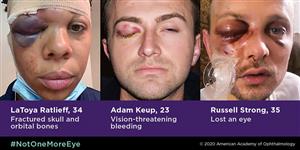
Written By: Susanne Medeiros
Life-altering eye injuries are an increasingly common result of urban protests and demonstrations. We have seen it around the world, from Kashmir to Chile to Hong Kong — and we now see it in the United States. The American Academy of Ophthalmology this week called on members of Congress to restrict the use of rubber bullets after more than 20 Americans across the country suffered serious eye injuries while peacefully protesting.
This Academy urged leaders of the House and Senate Committees on the Judiciary to support our call against rubber bullets as they consider police reform measures. Here’s a map of states, counties and cities that have already taken action on rubber bullets.
Tracking eye injuries from rubber bullets
To determine how many people have sustained eye injuries or lost sight due to their participation in protests, the Academy and University of California San Francisco have launched a registry through the school’s ophthalmology department.
Here’s what we’ve learned so far:
Tips on how to stop the spread of Coronavirus
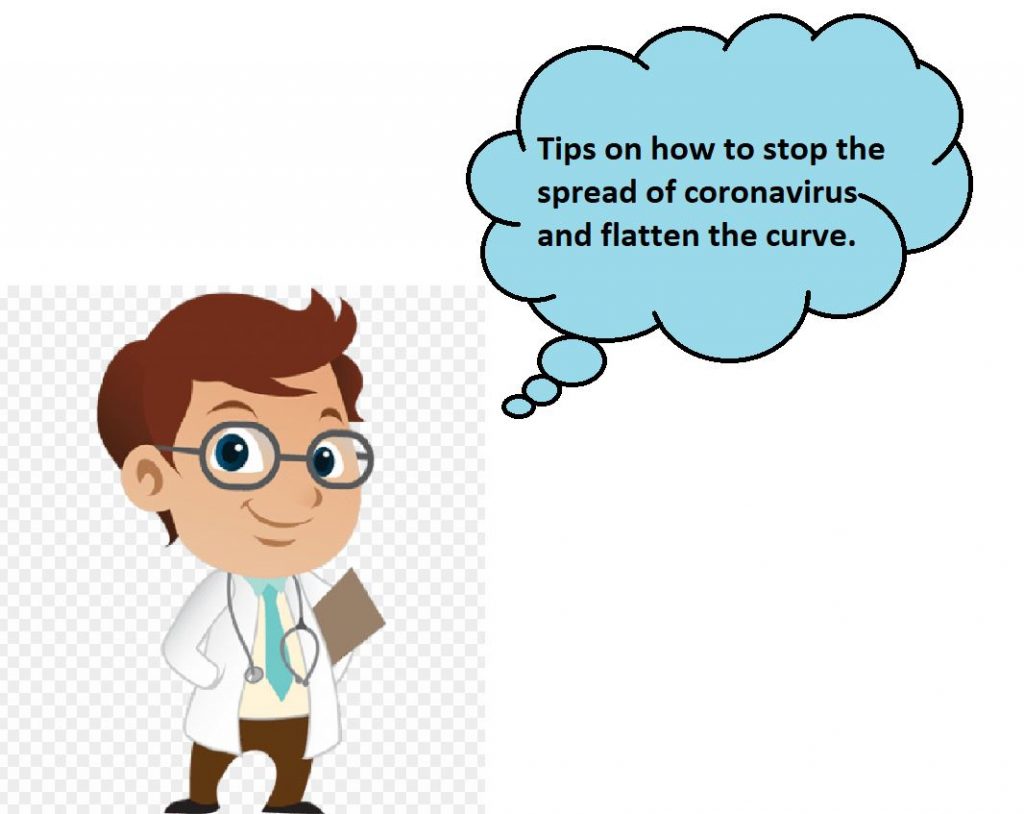
Here at Clarity Eye Center, we are dedicated to helping our communities stay safe and healthy. As we are open at the Round Rock and Georgetown locations, here are some tips from healthcare.gov.
As the COVID-19 pandemic continues, there are still important ways that you can help stop the spread of COVID-19. The best way to prevent illness is to avoid being exposed, which means to stay home as much as possible. If you must go out, be sure to practice social distancing, leaving 6 feet between you and any person you come in contact with.
Other ways to help prevent the spread of this illness include:
- Wash your hands often with soap and water.
- Cover your mouth and nose when you cough or sneeze.
- Use a face-covering or mask when you go out.
- Call your doctor if you think you’re experience symptoms.
Open for in Office Appointments

We are open to see patients in office. We will continue to follow social distancing and sanitizing measures to keep our patients and our team safe. Our Round Rock office is open and our Georgetown office will open May 1, 2020. Thank you for your patience as we maneuver through this time. Masks/face coverings will be required for your appointment. Please call to make an appointment 512-244-7200.
Coronavirus Eye Safety
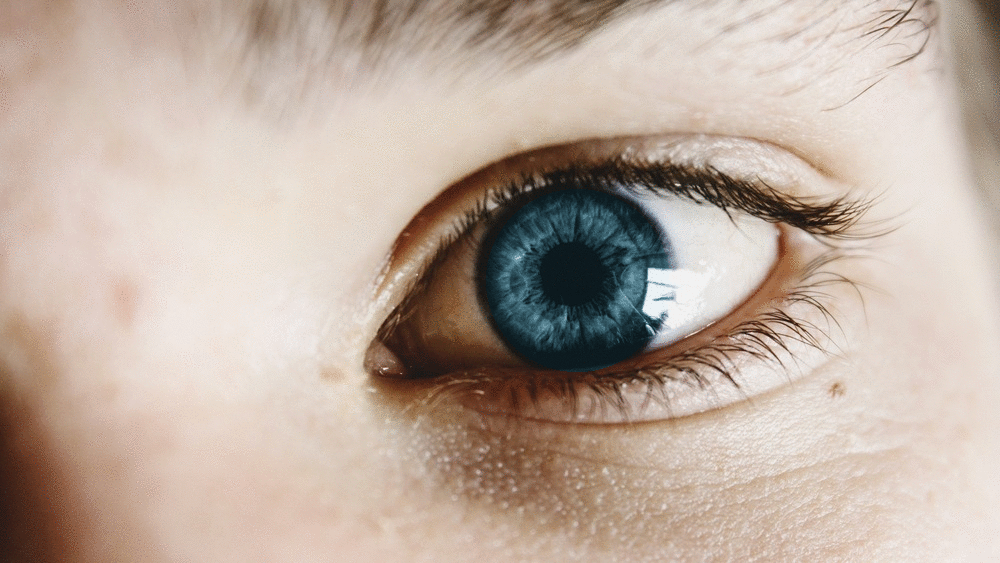 Coronavirus Eye Safety – “Experts say guarding your eyes — as well as your hands and mouth — can slow the spread of coronavirus. Here’s why it’s important to protect your eyes during the coronavirus pandemic.”
Coronavirus Eye Safety – “Experts say guarding your eyes — as well as your hands and mouth — can slow the spread of coronavirus. Here’s why it’s important to protect your eyes during the coronavirus pandemic.”
Age-Related Macular Degeneration
- At February 04, 2020
- By Pamela Myhre
- In Eye Awareness, Eye Health, Eye safety
 0
0
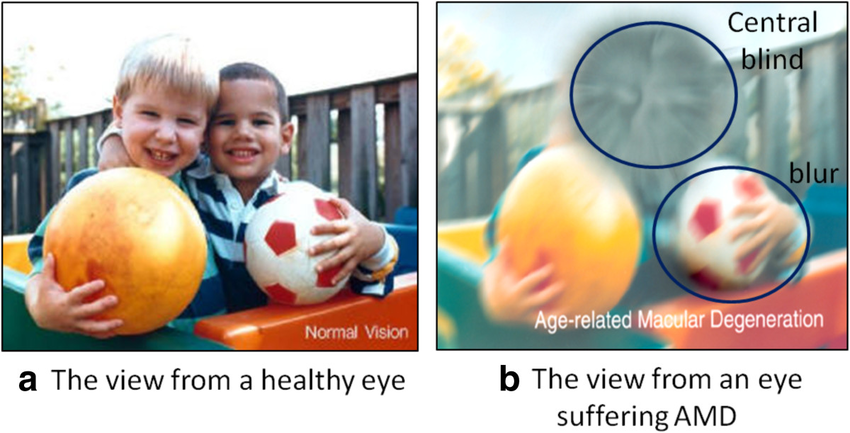
Are you or someone you love experiencing vision like the one on the right? Read this article regarding the top 5 risk factors for age-related macular degeneration. Call our office today for an appointment 512-244-7200.
November-Diabetic Eye Disease Awareness Month
- At November 06, 2019
- By Pamela Myhre
- In Eye safety
 0
0
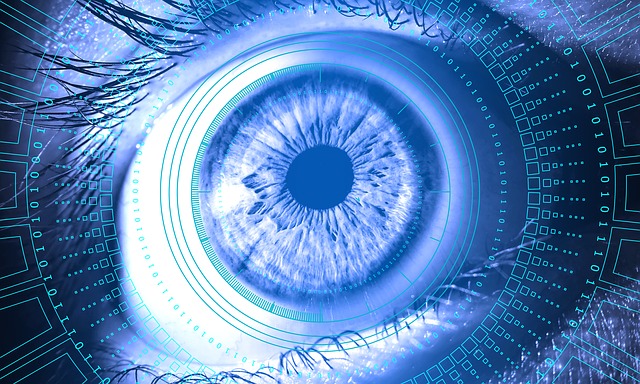
November is Diabetic Eye Disease Awareness Month according to the American Academy of Ophthalmology.
It is important to take good care of your eyes when you have diabetes. Did you know that diabetes can harm your eyes? The good news is that you can take steps to help keep your eyes healthy. The tips below will get you started.
TIPS TO KEEPING YOUR EYES HEALTHY
1. Get a dilated eye exam at least once a year and share the results with your primary care doctor.
• In this exam, you will get eye drops to make your pupils larger. Pupils are the black circles in the middle of your eyes. The drops are painless and help your eye doctor see inside your eyes to look for signs of health problems.
• A dilated eye exam can help your eye doctor find and treat problems to keep you from losing your vision from diabetes.
• Our eye doctor may take pictures of your eyes with a tool called retinal photography. This helps to see the retina, which is at the back part of your eyes.
• Be sure to keep your next eye doctor appointment!
2. Visit your eye doctor right away if you:
• See little black lines or spots that don’t go away.
• See any red spots.
• See red fog.
• Have a sudden change in how clearly you see.
• Take longer than usual to adjust to darkness.
